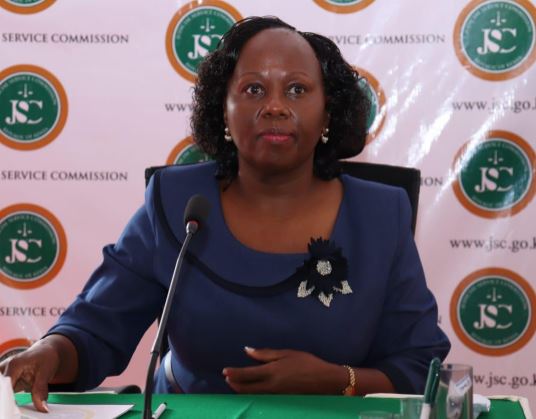×
The Standard e-Paper
Join Thousands Daily

Prof Kameri Mbote appears before the JSC panel in interviews for the position of Chief Justice. [Collins Kweyu, Standard]
Prof Patricia Kameri Mbote is today facing the Judicial Service Commission (JSC) panel now in its second day of interviews.